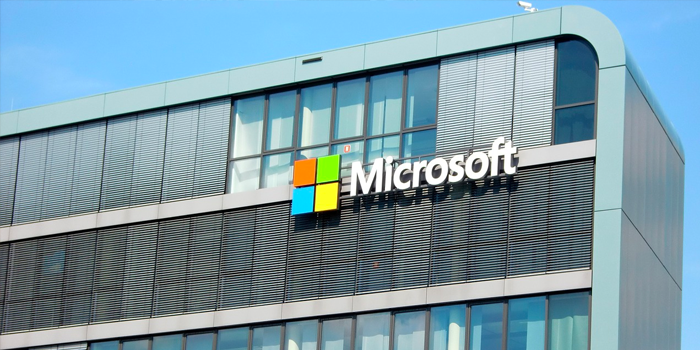
by eclewis | Dec 29, 2021 | Business News, Software Licensing
How To Create A License For Software
Protecting the software company and the end-user is one of the many benefits of software licensing. Large and small companies alike are vulnerable. Unknowingly, organizations and individuals often utilize unlicensed software. Using unlicensed software is against the law and may result in a loss of time and money. Additionally, it might have a detrimental effect on production and efficiency. In this article, we will highlight the importance of software licensing and how to create a license for software.
Software Licenses
A software license is a legally binding agreement that outlines the terms and conditions for the use and distribution of software. Typically, software licenses allow end-users to make one or more copies of the program without breaking copyright laws. Additionally, the licensing agreement describes the parties’ obligations to the agreement and may place limits on how the program may be used. Software licensing terms and conditions often contain provisions governing fair use of the software, liability restrictions, warranties, and disclaimers. Additionally, they define safeguards in the event that the program or its usage violates the intellectual property rights of others. There are two distinct kinds of software licenses, each of which is treated differently under copyright law.

Free and Open-Source Software (FOSS)
The term “open source” is often used to refer to licensing for free and open-source software (FOSS). Along with the software product, the buyer receives the FOSS source code, and generally, the client is permitted to modify the program using the source code.
Proprietary License
Closed source is often used to refer to proprietary licensing. They supply operating codes to consumers, and users are not permitted to change this program in any way. Additionally, these agreements often prohibit reverse-engineering the software’s code in order to access the source code. With software becoming increasingly more prevalent in our daily lives, we must become familiar with key aspects such as software licensing. Despite the fact that software licensing might seem to be a complicated concept, consumers should make an effort to understand the ins and outs of it in order to improve software innovation.
Why Is Knowing How To Create A License For A Software Important?
Having a software license in place protects all individuals involved from the creating of software to the end-user. For example, someone may acquire the software, reverse engineer it, and then offer their own version. The software provider loses income, and the end-user obtains an unauthorized copy of the product, resulting in performance difficulties and cybersecurity concerns. If the end-user breaches the conditions of the software license agreement, they risk losing access to the product or facing a fee. Individuals and organizations should read and comprehend the software licensing terms in their entirety.
The Importance of Hiring An Experienced Software Licensing Attorney
Deal Negotiation
Hiring a lawyer to represent you who is experienced in how to create a license for a software gives you the option to negotiate a better bargain than the one given at the time of the license’s first offer. Negotiating a stronger license agreement is critical because it will help your firm save money over time. For instance, your lawyer may be able to reduce the cost of licensing or increase the number of software licenses you may keep. Additionally, your lawyer may be able to negotiate a longer license term for your firm, ensuring that you will not need to renew it in the near future.
Usage Rights
One of the most fundamental reasons to consult a lawyer when licensing new software for your business is to ensure that you fully understand your usage rights and obligations. If the tiny print of your license is not fully understood, you risk unknowingly violating it and losing your right to use the program you need. Fortunately, you can rely on your attorney to walk you through the whole licensing agreement line by line, ensuring that you thoroughly grasp each point and how the usage rights and laws will affect your capacity to use your new software in the future years, if at all. And, after everything is said and done, you’ll be able to avoid doing any activities, such as installing the program on unauthorized machines that would constitute a violation of your licensing contract.
Easy Deactivation
Suppose your company determines that it no longer requires the software you’re licensing. In that case, your lawyer can advise you on whether you may lawfully deactivate your license by providing notice or if you’ll be required to pay the penalty to exit the license early. Alternatively, if you want to transfer your software license to a new computer system, your lawyer may assist you with deactivating the license for the previous system, transferring the program to the new system, and then activating fresh licensing for it in a legal and smooth manner. Additionally, your attorney will assist you in ensuring that any actions or costs required to transfer your license to a new computer system are completed in a timely way, so you do not have to deal with a gap in your licensing.
Need An Attorney to Create a License for Software?
Elizabeth Lewis is an experienced software licensing attorney in Denver. If you have questions about how to create a license for a software, Contact the Law Office of E.C. Lewis today!

by eclewis | Nov 29, 2018 | Software Licensing
The Importance of Software Compliance
Your growing business needs more support, so you hire a new employee. You have carved out a work space and purchased another computer for her. She is able to start right away since you found an old Microsoft Office disc (which you previously installed on another employee’s system). Then, several weeks down the road, your new hire is just not working out and has to be let go. Next thing you know, you are summoned to court and ordered to pay thousands in fines for software license infringement. This nightmare scenario happens more often than you think, and there are enforcement programs and companies who will pay handsome sums to whistle-blowers like your disgruntled ex-employee. According to an Inc.com article, Microsoft Office is the most common software used in business today. No matter how small your business, you are required to have the correct license for each device running the MS Office Suite and in the correct version. A small business attorney will help you with all of your software licensing issues, including your own intellectual property that should be protected.
Microsoft, like other large technology companies, has been aggressively reconciling software licenses through audits in an effort to reduce piracy and abuse. They tally up users and licenses for their products, including Windows, Office, and Windows Server. If you are not in compliance, you will be faced with costly fees – “true-ups” – to update your software licensing. And, the more out of compliance your business is, the more costly the fines. Here are five helpful points to keep small businesses compliant with big corporations like Microsoft.
Small Business Compliance is Very Important
Companies, like yours, in the small business category tend to grow very rapidly. Say you begin with an operation of 20 employees/20 computers. As you grow and add more users, you should purchase more licenses, something many people neglect to do. Five years down the road, you could be several licenses behind, resulting in thousands of dollars in true-up fees. Your small business attorney will make sure you stay current and compliant with your software licenses.
Audits are Fear-Instilling and Time-Consuming
There are plenty of things you should or would rather be doing than scouring your receipts and serial numbers. Keeping good records, understanding your agreements, and knowing what is being used by all of your employees will give you peace of mind and drastically reduce your stress level in the event of a software audit. You can create a compliance checklist with your attorney.
Original Equipment Manufacturer (OEM) Licenses are Different Than Open Licenses
Software licensing can be a confusing combination of technology and legal jargon. An OEM license applies to one specific piece of equipment, and even if an OEM license key is printed on the side of a piece of hardware, it cannot be used on another machine. However, an open source license can be used on any piece of equipment.
Volume License Keys (VLK) Have Limits
If you choose to buy a license using a VLK – e.g. 75 versions of MS Office for a multi-activation key – once you reach the agreed upon limit, the license is no longer usable. Each time you activate the key, it will decrease by one.
Compliance Matters to Businesses, Big and Small
Running genuine software not only renders your equipment faster and more secure and reliable, but it will also keep your small business out of trouble with big tech companies. Software compliance is just as important as protecting your proprietary software from being stolen by others. You can register easily and quickly with the United States Copyright Office.
If you need help with software licensing, contact me, Elizabeth Lewis, at the Law Office of E.C. Lewis, P.C., home of your Denver Business Attorney. Phone: 720-258-6647. Email: elizabeth.lewis@eclewis.com
Contact Us Today
Law Office of E.C. Lewis, P.C.
Your Denver Business Attorney
LICENSED IN COLORADO AND NORTH CAROLINA
Mailing Address:
501 S. Cherry Street, Suite 1100
Denver, CO 80246
720-258-6647
Elizabeth.Lewis@eclewis.com
Real Estate Services for Business Owners
Elizabeth Lewis provides the following real estate law services to small and medium sized business owners in Denver and throughout Colorado:
- Commercial real estate purchases
- Legal review of commercial real estate leases
- Protecting your assets

by eclewis | Oct 11, 2017 | Software Licensing
Protect Your Business’s IP With Software Licenses
Your intellectual property (IP) can be protected by copyrights, trademarks, patents, and licenses.
You may have a product or service that calls for more than one of these IP rights. A software license is a legal instrument that governs the use or redistribution of software. These contracts transfer IP rights from the owner (licensor) to another party who wants to use them (licensee). They can be exclusive – allowing only one licensee – or nonexclusive – granting rights to multiple users. Besides protecting your business’s assets, licenses can generate significant revenue. If you have a product, website, application, or idea that needs to be licensed, Denver Small Business Attorney E.C. Lewis, P.C. will work with you to protect your intellectual property. This post will cover some basics of software licensing.
- Before Choosing Your Software License
- Ways to License Your Software
- Generating Revenue with a Software License
1. Before Choosing Your Software License
If you make your own software program or application, you likely want as many people to use it as possible – legally, that is. But, how do you decipher the billions of pages of information and laws about software copyrights, end-user license agreements (EULAs), other types of licenses, and so on? How do you know for sure what happens and how protected you are once your product is released? These are among the many major considerations, such as who holds the rights to your work, who gets to use it, how much access do they have to your design/code, and what type of license is best for your product. The last thing you want is to set yourself up for trouble. Simple protective measures regarding copyrights and licensing will go a long way, like going more restrictive than liberal in your terms from the start. As a developer, you may have some notion of how you would like the launch of your program or application to play out. The advice of a small business attorney with extensive experience in the information technology sector will help secure your IP and potential profits.
2. Ways to License Your Software
EULAs bind the end-user (licensee) with a valid contract and grant rights to use the software with terms and conditions. Some of these include limitation of liability of the licensor, disclaimer of warranties, choice of applicable law to the contractual relationship, venue for possible disputes, etc. Open-source licenses, like Apache 2.0, GPL, and LGPL, can be viewed as ready-made universal EULA formats. The open-source community is growing with more developers publishing their code online. Here are a few types of licenses.
- MIT (Massachusetts Institute of Technology) License is an open-source license that allows the user to do as they wish with the software/code as long as they give you proper credit or attribution. You are not held liable if issues arise from the software.
- Apache License 2.0 is similar to the MIT License, but the end-user cannot use any of the work under your trademark. This gives you patent protection.
- GPL (General Public License), known as a viral license, is widely used. With this license, anyone can use, distribute, and modify the software. The Lesser GPL (LGPL) is a less viral type, permitting the use of a library in proprietary programs and protecting your code under similar rules to GPL. It does not force any code outside of your own to be released under the same license.
- Artistic License 2.0 enables users to copy and distribute copies of the software, but changes are not allowed.
- EPL (Eclipse Public License) allows people to use, modify, copy, and distribute the code and modified versions for free. With an EPL license, anyone distributing the work must grant every recipient a license to any patents that cover the modifications they have made.
- BSD (Berkeley Software Distribution) Licenses are a series of licenses which have varying clauses. The Simplified BSD license and the New BSD license are two GPL compliant licenses. These licenses impose the minimal restrictions on the redistribution of covered software.
These are only a few of the major software licenses out there. Your small business attorney can go over all of the different levels of complexity, restrictions, and benefits among them to determine what is right for you.
3. Generating Revenue with a Software License
When it comes to protecting your IP, software is one of the most licensable. The key to the successfully commercializing your software is to choose the right license in order to generate revenue without giving up rights. Partnering licensing is a way to gain additional support, recognition, or marketing channels. A co-brand license can lend credibility and quickly raise awareness, leading to broader sales. Another partnering strategy is to license out rights to market and distribute your product. This could enable you to enter into global markets you would otherwise not reach. A third example is non-competing field, which is a good alternative if you do not intend to enter certain markets. In this case, you could partner with a larger, established software developer of another product and bundle yours with it. Whichever way you decide to go, it is essential to register with the U.S. Copyright Office. This reinforces your rights, especially if you find yourself in litigation. A small business attorney will be there with you if you ever have to take someone to court.
If you need help with software licensing, contact me, Elizabeth Lewis, at the Law Office of E.C. Lewis, P.C., home of your Denver Business Attorney. Phone: 720-258-6647. Email: elizabeth.lewis@eclewis.com
Contact Us Today
Law Office of E.C. Lewis, P.C.
Your Denver Business Attorney
LICENSED IN COLORADO AND NORTH CAROLINA
Mailing Address:
501 S. Cherry Street, Suite 1100
Denver, CO 80246
720-258-6647
Elizabeth.Lewis@eclewis.com
Real Estate Services for Business Owners
Elizabeth Lewis provides the following real estate law services to small and medium sized business owners in Denver and throughout Colorado:
- Commercial real estate purchases
- Legal review of commercial real estate leases
- Protecting your assets
by eclewis | Oct 22, 2014 | IP Law
As part of our series on open source software licenses, we have already discussed the GNU General Public License, the GNU Lesser GPL, and the Apache License. This time, we will discuss two other popular open source software licenses that are much shorter and simpler. However, while these licenses are arguably the most unrestricted licenses available, they can still be important in protecting you from legal liability.
Both the MIT License and the BSD License discussed below, like the Apache License, do not impose any of the “copyleft” tactics found in the GPL and LGPL that restrict use of the software to only other open source and freely distributable software. Like Apache, MIT and BSD do not require the source to be distributed with the software, but unlike Apache, GPL, and LGPL, the MIT and BSD Licenses do not require notation of modifications or prevent people from acquiring patents based on your original work.
The BSD and MIT Licenses do still protect you by disclaiming warranties and limiting liability, as well as make sure you are credited for the original work.
BSD License
The newer BSD Licenses are short and come in two varieties, a three-clause or two-clause version. The three-clause version is seen below and the two-clause version simply eliminates clause three to allow for use of the copyright holder’s name in advertising of derivative works. If you do not wish to have your name associated with such works, you should use the three clause version and also avoid the MIT License below, since it does not offer such limitation.
Copyright (c) <YEAR>, <OWNER>
All rights reserved.
Redistribution and use in source and binary forms, with or without modification, are permitted provided that the following conditions are met:
1. Redistributions of source code must retain the above copyright notice, this list of conditions and the following disclaimer.
2. Redistributions in binary form must reproduce the above copyright notice, this list of conditions and the following disclaimer in the documentation and/or other materials provided with the distribution.
3. Neither the name of the copyright holder nor the names of its contributors may be used to endorse or promote products derived from this software without specific prior written permission.
THIS SOFTWARE IS PROVIDED BY THE COPYRIGHT HOLDERS AND CONTRIBUTORS “AS IS” AND ANY EXPRESS OR IMPLIED WARRANTIES, INCLUDING, BUT NOT LIMITED TO, THE IMPLIED WARRANTIES OF MERCHANTABILITY AND FITNESS FOR A PARTICULAR PURPOSE ARE DISCLAIMED. IN NO EVENT SHALL THE COPYRIGHT HOLDER OR CONTRIBUTORS BE LIABLE FOR ANY DIRECT, INDIRECT, INCIDENTAL, SPECIAL, EXEMPLARY, OR CONSEQUENTIAL DAMAGES (INCLUDING, BUT NOT LIMITED TO, PROCUREMENT OF SUBSTITUTE GOODS OR SERVICES; LOSS OF USE, DATA, OR PROFITS; OR BUSINESS INTERRUPTION) HOWEVER CAUSED AND ON ANY THEORY OF LIABILITY, WHETHER IN CONTRACT, STRICT LIABILITY, OR TORT (INCLUDING NEGLIGENCE OR OTHERWISE) ARISING IN ANY WAY OUT OF THE USE OF THIS SOFTWARE, EVEN IF ADVISED OF THE POSSIBILITY OF SUCH DAMAGE.
The MIT License (MIT)
The MIT License is an even shorter license, that is very similar to the two-clause version of BSD. The entirety of this license is seen below.
Copyright (c) <year> <copyright holders>
Permission is hereby granted, free of charge, to any person obtaining a copy
of this software and associated documentation files (the “Software”), to deal
in the Software without restriction, including without limitation the rights
to use, copy, modify, merge, publish, distribute, sublicense, and/or sell
copies of the Software, and to permit persons to whom the Software is
furnished to do so, subject to the following conditions:
The above copyright notice and this permission notice shall be included in
all copies or substantial portions of the Software.
THE SOFTWARE IS PROVIDED “AS IS”, WITHOUT WARRANTY OF ANY KIND, EXPRESS OR
IMPLIED, INCLUDING BUT NOT LIMITED TO THE WARRANTIES OF MERCHANTABILITY,
FITNESS FOR A PARTICULAR PURPOSE AND NONINFRINGEMENT. IN NO EVENT SHALL THE
AUTHORS OR COPYRIGHT HOLDERS BE LIABLE FOR ANY CLAIM, DAMAGES OR OTHER
LIABILITY, WHETHER IN AN ACTION OF CONTRACT, TORT OR OTHERWISE, ARISING FROM,
OUT OF OR IN CONNECTION WITH THE SOFTWARE OR THE USE OR OTHER DEALINGS IN
THE SOFTWARE.
If you have any questions about deciding on a license or creating specialized license for your software, contact the Law Office of E.C. Lewis, PC, home of your Denver Small Business Lawyer, Elizabeth Lewis at 720-258-6647 or email her at elizabeth.lewis@eclewis.com.





